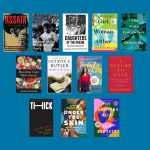 As we approach the 50th anniversary of the March on Washington, I’ve been re-reading and thinking a lot about Martin Luther King, Jr.’s “I Have a Dream” speech. I’m simultaneously in awe of and distressed by the timelessness of the speech. It encompasses feelings and aspirations that far exceed the boundaries of race. But so many of the challenges outlined in the speech are applicable today. I don’t say that to minimize the impact that King or the March on Washington had – but I’m struck by the fact that if you replace the word “Negro” with words like “poor,” or “black,” or “Latino,” or “undocumented” in the text of the speech, it’s still so relevant.
As we approach the 50th anniversary of the March on Washington, I’ve been re-reading and thinking a lot about Martin Luther King, Jr.’s “I Have a Dream” speech. I’m simultaneously in awe of and distressed by the timelessness of the speech. It encompasses feelings and aspirations that far exceed the boundaries of race. But so many of the challenges outlined in the speech are applicable today. I don’t say that to minimize the impact that King or the March on Washington had – but I’m struck by the fact that if you replace the word “Negro” with words like “poor,” or “black,” or “Latino,” or “undocumented” in the text of the speech, it’s still so relevant.
While the words “I have a dream” are the best-known parts of the speech, for me one of the most powerful passages is about America’s obligation to guarantee every citizen life, liberty and the pursuit of happiness. King said that the nation had “defaulted on this promissory note” when it came to citizens of color. “We refuse to believe,” he said, “that there are insufficient funds in the great vaults of opportunity of this nation.”
That has never been more true in America’s history than now. When we look at what people are doing in fields like technology, finance and entertainment, the opportunities seem endless. But for far too many people, those great vaults are sealed and secured – those opportunities remain out of reach. The generational cycles of poverty that so many people find themselves in are testament to just how closed our society can be to some people, and so is the widening gulf between the haves and the have-nots.
Being mired in poverty is this generation’s chains. Economic security and independence are our freedom. King’s speech reaches back through time to reference the Constitution, the Declaration of Independence and the Emancipation Proclamation – all documents created at turning points in history when people in this country came together to break open chains and embrace freedom. Their efforts propelled this nation forward – we don’t look back on our history and regret becoming an independent nation, or ending slavery or giving everyone the right to vote.
The original 1963 march was officially called the March on Washington for Jobs and Freedom. The organizers of that historic event knew that jobs and freedom go hand in hand, but I think that in the 50 years since, we may have forgotten some of that. Without the right resources, networks and opportunities, people can’t get good jobs. And without good jobs that not only sustain families but provide them with a stability and savings for the future, too many people are missing out on freedom, strength, independence and equality.
That’s why Washington Area Women’s Foundation is participating in the 50th anniversary rally and march on Saturday. As we walk elbow-to-elbow with thousands of other people I will be thinking about King’s speech and his unwavering faith in humanity, belief in the American dream, and confidence that by working together, we can live in a country that lives up to its promise.
I invite you to join us. “We cannot walk alone.” Email mcraven@wawf.org for details.


